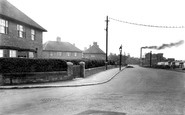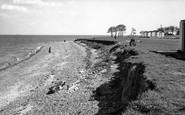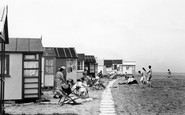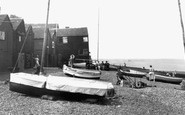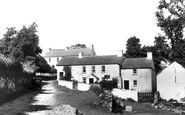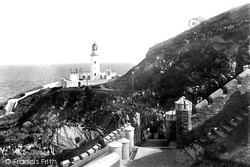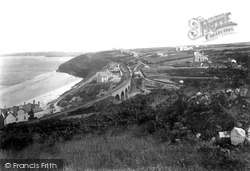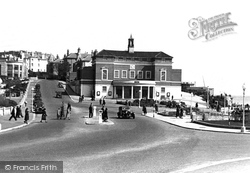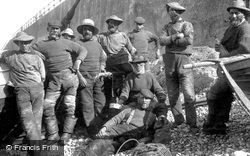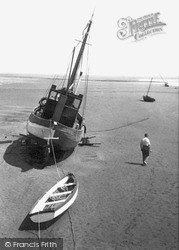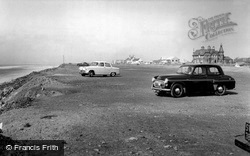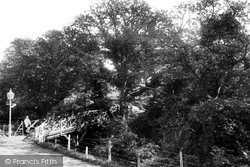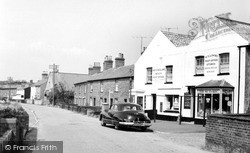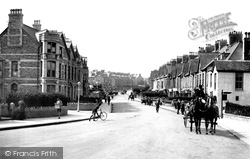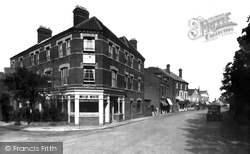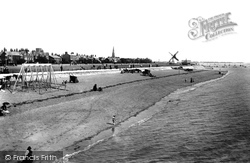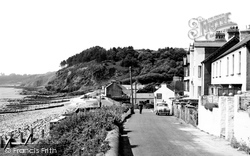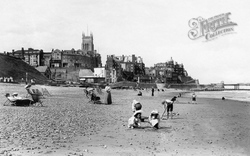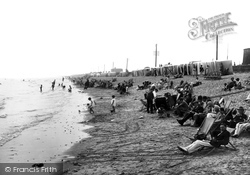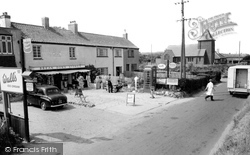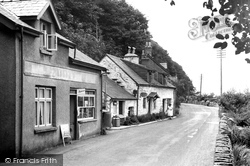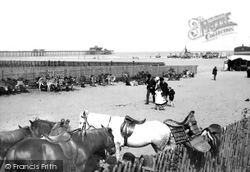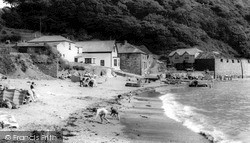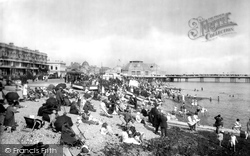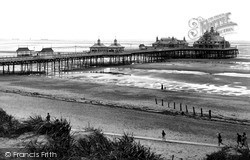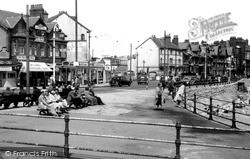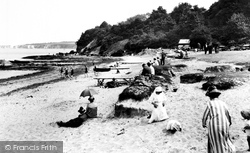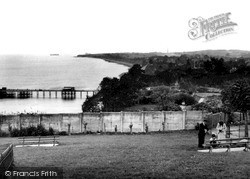Merry Christmas & Happy New Year!
Christmas Deliveries: If you placed an order on or before midday on Friday 19th December for Christmas delivery it was despatched before the Royal Mail or Parcel Force deadline and therefore should be received in time for Christmas. Orders placed after midday on Friday 19th December will be delivered in the New Year.
Please Note: Our offices and factory are now closed until Monday 5th January when we will be pleased to deal with any queries that have arisen during the holiday period.
During the holiday our Gift Cards may still be ordered for any last minute orders and will be sent automatically by email direct to your recipient - see here: Gift Cards
Places
1 places found.
Those places high-lighted have photos. All locations may have maps, books and memories.
Photos
11 photos found. Showing results 781 to 11.
Maps
4 maps found.
Books
Sorry, no books were found that related to your search.
Memories
1,368 memories found. Showing results 391 to 400.
Memories Of My Childhood In Rossington.
My story starts on the 1st of March 1950, the date of my birth at Doncaster Royal Infirmary. My parents Jack & Mary Flather lived in Old Rossington at 65 Haigh Crescent, living with relatives (Guy) ...Read more
A memory of New Rossington in 1950 by
A Seaside Holiday At Allhallows
My earliest memories of the seaside are from the 1950's. We lived in Bexleyheath and - like most people - did not own a car in those far off austerity years after the war. For this reason our summer holidays were ...Read more
A memory of Allhallows in 1954 by
Holidays
We used to go on holidays almost every year to Littlehampton, so far as I can remember. We took the train there. Then we walked - lugging our suitcases. There was a butcher's shop on the way and it had a little statue of a pig ...Read more
A memory of Littlehampton in 1949 by
Circus At The Village Hall C 1955
We lived in the village pub The Lifeboat Inn. I remember being flooded and all the beer barrels floating in the cellar, mum cooking mussels given in lieu of beer, which were left in the bath and climbed up the ...Read more
A memory of Brancaster in 1955 by
Memories Of Good Times
Coming across this picture sparked memories of such happy times I had as as a child spending my summer holidays in a chalet at Seaview. It was not unusual to stay for four or more weeks in one of the chalets and spend ...Read more
A memory of Swalecliffe in 1958 by
Childhood Beach Hut
This scene of the old fishermen's beach huts shows my family's beach hut on the left. The lady just about to enter the beach hut was my grandmother, I am playing on the beach and my sister is in the pushchair next to the ...Read more
A memory of Whitstable by
Porthily Beach
Myself and my 3 sisters Ginine, Chantelle and Michaela all used to go down to the Porthily Beach regularly with our mum and dad. We have wonderful memories there. Our dad brought home a tractor inner tube from a tyre and pumped it up ...Read more
A memory of Rock in 1979 by
Growing Up In World War Ii
I was born to Jewish parents whom had a ladies clothes shop in Kensington Gardens (The Lanes) my Father died in 1941, My Mother now a very young widow decided she wanted us all to live above the shop because of bombs ...Read more
A memory of Brighton in 1930 by
Living At East Cwm Ivy
Lived at East Cwm Ivy as a child from 1973 to 1980. This photo does not show our house but the view from it to the houses you go past to go to the beach.
A memory of Llanmadoc in 1973 by
Captions
1,121 captions found. Showing results 937 to 960.
Douglas Head Lighthouse was erected in 1892, replacing the sixty year old Red Pier light. In 1786 Douglas harbour lighthouse had been destroyed during a storm and not rebuilt.
The railway viaduct crosses the little valley behind the beach, and the station platform is just beyond. Another major engineering feat on this scenic line is the rock cutting in the far headland.
Bournemouth did not exist at all until Mr Lewis Tregonwell built a holiday home in the middle of hitherto wild heathland in 1810. During the 19th century it remained a select resort for the well-off.
Fishermen have to be tough, not only to ply their trade at sea, but also to have the strength to haul their heavily laden boats by hand up the steep shingle beach.
By the 1950s, amateur yachtsmen 'messing about in boats' were a common sight.
Blundellsands beach forms part of the sixteen miles of sand stretching from Waterloo to Southport.
Surrounded by some of the oldest trees in Penarth, children on the bridge gaze toward the camera. In 1884 gas lamps were installed along the route to the beach.
On the left side of Ceylon House is the post office and to the right the grocer's and provision's shop, both run by William Lowrey. Today both businesses are in the right half of the building.
A few horse carriages and carts, a bicycle and one distant motor car are the only vehicles in the street during the last year of the Great War.
Known as the village of millionaires at the turn of the century (because no less than six lived in the village), Overstrand maintained its exclusivity for many years.
There are swings on Lytham Beach and a few children paddling – no longer to be seen in the 21st century, as the sand is now overgrown with invasive Spartina grass.
The AA sign on the Amroth Arms beckons as a recommendation in this pleasant Pembrokeshire village.
With their vivid imaginations taking them away from schoolwork and parental control, the children are digging, building sandcastles or looking for treasure.
There is never a shortage of children to enjoy the sandy delights of Dymchurch beach. This fashionable holiday destination was home at this time to the Great War artist Paul Nash.
All the way north from Burnham to Brean Down, the six miles of road behind the sand dunes and beaches has a string of bungalows, chalets, shops, caravan parks, amusement parks and holiday camps, as well
Modern dormer windows tell us that 'home improvements' are on their way for these small Welsh cottages, and this lady offers morning tea and coffee in hers to visitors on their way to the beaches nearby
This last chapter follows on geographically from where the fourth chapter finished, at Burgh le Marsh four miles west of Skegness.
Children play on the beach and collect flotsam from the tide line while their parents sit beside windbreaks. The roof on the fish palace has now almost completely gone.
Between the wars, Worthing lost its wonderful town hall and theatre.
The pier was designed and constructed by Mr A Dowson and opened by Lord Stanley in 1855. In 1899 the Moorish Pavilion was added, and the Floral Hall opened in 1910.
The White Horse Inn dates from 1851, and was built on land owned by William Primrose, a brewer from Trunch. Another older pub, the Fishing Boat, dates from 1840.
It is a nice sunny day; there are people about, and there is time for a leisurely chat, while some seem interested in the beach just out of shot.
The journey to Studland Bay was probably the favourite excursion for tourists from Swanage, who could either get there by walking along the cliff tops or by taking a carriage or charabanc along the
This striking view across the bay was taken from the grounds of The Kymin. The house is one of the very few left that are 'pre Esplanade', itself occupying the site of an earlier farm.
Places (1)
Photos (11)
Memories (1368)
Books (0)
Maps (4)

